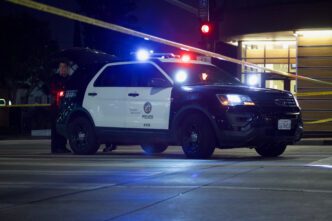Executive Summary
- A police raid in Rio de Janeiro’s favelas involving over 2,500 officers became the deadliest in Brazil’s history, with a potential death toll as high as 132.
- Governor Cláudio Castro termed the operation a “success” against “narco-terrorists,” while President Lula expressed being “appalled” at the number of deaths.
- The incident highlights Brazil’s ongoing security crisis, where police killed over 60,000 people between 2014 and 2024.
- Analysts argue that violent repression has become a political tool, creating a system where police, politicians, and criminal groups benefit from a cycle of fear.
A large-scale police operation in Rio de Janeiro on Tuesday, October 28, has resulted in the deaths of several dozen people, becoming the deadliest such raid in Brazil’s history. More than 2,500 officers, supported by drones and armored vehicles, entered the Alemão and Penha favelas. While official figures vary, the Rio public defender’s office reported the potential death toll could be as high as 132.
Rio de Janeiro’s Governor, Cláudio Castro, publicly defended the operation, calling it “a success” and referring to the targets as “narco-terrorists.” The raid occurred as the city prepared to host the C40 World Mayors Summit. President Luiz Inácio Lula da Silva stated he was “appalled” by the number of deaths but maintained that “organized crime cannot continue to destroy families.”
Systemic Violence and Public Security
The incident has intensified the debate over Brazil’s public security strategy. According to an analysis by Felipe Krause, a lecturer at the University of Oxford, Brazil’s long-standing “war on drugs” has institutionalized state violence. Statistics cited indicate that police operations in Brazil killed 60,394 people between 2014 and 2024. In 2024 alone, police in the state of Bahia killed 1,556 people, a figure higher than all police killings in the United States for that year.
Krause’s analysis suggests a symbiosis between violent repression and politics, where the display of force is used to project strength and gain political legitimacy. This has occurred alongside the evolution of criminal organizations like the Comando Vermelho (CV) and Primeiro Comando da Capital (PCC), which have expanded beyond drug trafficking into diversified illicit economies, including gold mining and cyberfraud. Polls from late 2024 showed that 51 percent of Brazilians reported feeling more fear than trust in the police, yet public support for the recent raid remains high at 55 percent, according to recent polling.
Calls for Reform
In response to the killings, President Lula has pointed to a proposed constitutional amendment to centralize security policy planning under the federal government. However, critics have described the bill as “timid,” arguing it fails to address police lethality and accountability. Experts have called for significant reforms, including the demilitarization of state police forces, the establishment of independent federal oversight for killings by officers, and increased international cooperation to dismantle the financial networks of organized crime.
The central challenge, as framed by analysts, is to address the political and economic systems that sustain the cycle of violence. It is important to note that individuals targeted in such operations are presumed innocent until proven guilty in a court of law.






